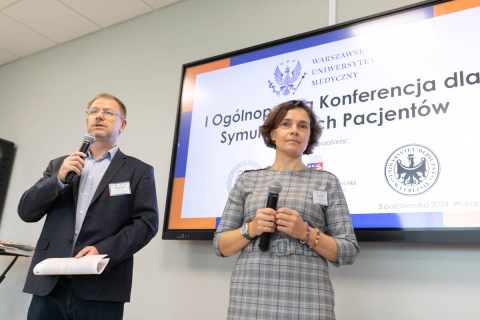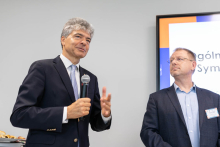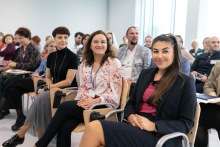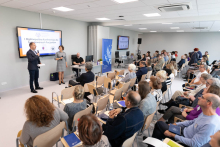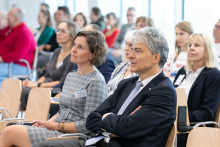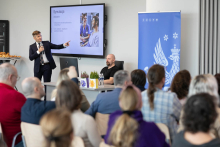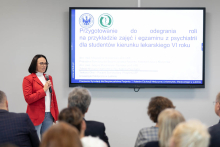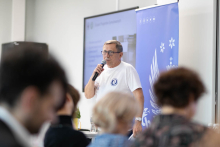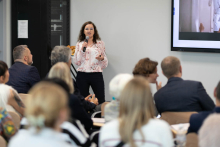On October 5, 2024, the 1st National Conference for Simulated Patients was held at the Medical Simulation Center of the Medical University of Warsaw. The event was organized by the Medical Communication Center and the Medical Simulation Center of the University. The co-hosts were the Center for Innovative Medical Education, Jagiellonian University – Collegium Medicum, K. Marcinkowski Medical University in Poznań and the Medical University of Lublin. The honorary patronage of the conference was taken by the rector of the Medical University of Warsaw.
Participants of the conference were welcomed by professor Marek Kuch, vice-rector for student affairs and education. During the opening, doctor Antonina Doroszewska emphasized the importance of simulated patients for developing students’ skills, in particular communication skills. Doctor Marcin Kaczor pointed out that the development of new technologies, including artificial intelligence, is changing the way we acquire knowledge and perform medical professions, but he emphasized that nothing can replace face-to-face contact. Therefore, activities with simulated patients involve the most essential skills of healthcare professionals.
The conference hosts pointed out that the involvement of simulated patients and their competences affect quality of education. The aim of the conference was to exchange experiences and learn about the perspective and needs of simulated patients, as well as to integrate people involved in this type of education at various medical universities in Poland. This idea met with great interest.
During the event, papers were presented on the importance of simulation in medical education and the development of communication skills of medical students. An important point of the program was a panel session and debate during which speakers discussed good practices in providing feedback and challenges related to preparing for the role of a simulated patient.
An additional attraction was a performance by a group of Simulated Patients of the Medical University of Lublin, who presented a piece of the play ‘May you be healthy’. The conference was also enriched by workshops addressed to both simulated patients and teaching staff, which enabled the improvement of the latter’s skills necessary in teaching with the participation of simulated patients.
